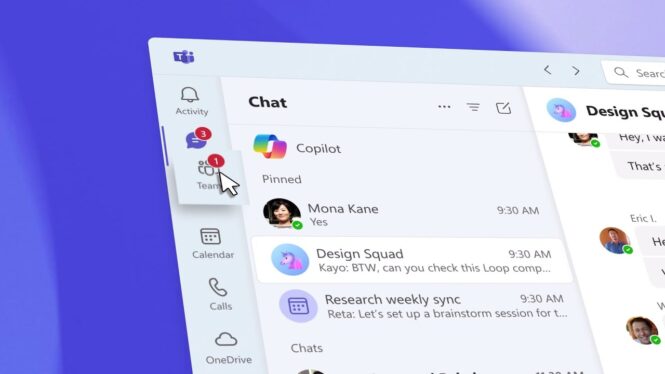Starting strong means using tools that help you grow fast without burning out. You don’t need flashy software. You need systems that handle real work: tracking leads, managing projects, handling money, building visibility, and making sure you’re not drowning in admin chaos.
Entrepreneurs who win don’t just work hard—they set up their business to run without them micromanaging every piece. The right tools give you time back. They prevent mistakes. They force clarity.
Below are the seven tools that should be on your radar from day one. Build around them, and your systems will scale as fast as your ambition does.
Key Highlights
- Project tools keep everything visible, organized, and on deadline
- CRMs track leads, clients, follow-ups, and revenue without dropping the ball
- Digital directories build instant credibility and support SEO
- Accounting software protects you from cash flow problems and tax season chaos
- Data dashboards let you act fast and cut what’s not working
- Scheduling tools eliminate pointless email threads and no-shows
- Team communication platforms create efficiency and momentum
Project Management: Stop Wasting Time on Chaos

New entrepreneurs wear every hat. Without a project management tool, your day slips into fire-fighting mode. You end up checking off the easiest tasks while ignoring the ones that move the needle. You bounce between messages, files, and mental lists. By the end of the week, you’re busy but not productive.
ClickUp, Asana, and Trello aren’t just task apps. They’re control centers. They let you assign work, set deadlines, automate repetitive tasks, and track deliverables—without meetings or emails.
ClickUp works best if you love structured planning and detailed dashboards. Asana is sleek, fast, and simple. Trello is visual and intuitive. The best one is the one you’ll actually use every day.
Without a system like this in place, your business becomes a pile of sticky notes and late-night panic sessions. Get out of reactive mode. Build around a tool that shows you what matters and what’s falling behind—before it costs you.
CRM: The Deal Saver You’re Probably Ignoring
Leads aren’t deals until they close. You can’t afford to forget names, miss follow-ups, or rely on your inbox to track sales conversations. Every entrepreneur hits that moment when “I’ll remember” turns into “Wait…who was that again?”
A CRM changes that. Tools like HubSpot, Zoho, or Pipedrive give you a clear pipeline. You see every contact, every deal stage, every note, every follow-up, every win. You stop winging it. You stop letting warm leads go cold because you didn’t have time to reply.
Most CRMs integrate with your email. They track conversations automatically. You can add reminders, schedule calls, and send personalized emails without leaving the platform.
If you don’t know your customer lifecycle, you’re not running a business—you’re gambling. A CRM keeps your sales engine running without guesswork.
Be Seen, Be Trusted: Get on a Business Directory

Visibility builds trust. If a potential client searches your name and finds nothing but a half-built Instagram page, they’ll move on. You need credible third-party listings that say, “This business is legit.”
The business directory as Acompio helps you get there. It’s not just a place to show up—it’s a platform where customers leave reviews, where businesses list their services, and where your profile boosts your SEO.
Whether you’re a freelancer, a startup, or a growing brand, you can’t afford to look invisible. Acompio lists thousands of companies, from solo consultants to established firms. It’s updated constantly, and it helps Google trust your business exists.
You don’t have to wait for press coverage or influencer shoutouts. A directory listing is a low-lift, high-impact move that gives you credibility from day one.
Bookkeeping That Keeps You in Business

Many entrepreneurs ignore their finances until it’s too late. One tax deadline, one missed invoice, one overdraft—and suddenly, they’re scrambling.
You don’t need to be a numbers person. You need smart software. QuickBooks, Xero, and Wave take the guesswork out of your books. They sync with your bank, track income and expenses, generate tax reports, and flag unusual activity.
Wave is free and built for freelancers. QuickBooks is robust and accountant-approved. Xero offers flexibility and sharp reporting. All three help you monitor cash flow, manage invoices, and plan smarter.
You need clean books for loans, investors, taxes, and decision-making. If your financial records are a mess, you’re not just risking stress—you’re risking survival.
Make Faster Decisions With Dashboards
Business decisions require more than vibes. You need numbers. Clear, real-time numbers that tell you where you’re winning, where you’re bleeding cash, and where you should shift focus.
Use Google Looker Studio, Databox, or Klipfolio to create one dashboard that shows all your essential metrics: site traffic, lead conversions, sales, ad performance, and churn.
Set it up once. Update it automatically. Check it every morning.
Dashboards aren’t about being fancy. They’re about acting fast. The earlier you catch a trend—or a problem—the faster you can fix it.
Good data makes you dangerous. It stops you from wasting time on vanity metrics and gives you the clarity to cut what’s not working.
Stop Email Tag: Use a Scheduling Tool
Back-and-forth scheduling kills momentum. You pitch a meeting. They reply with three times. You counter. They’re no longer free. The deal fizzles.
Calendly, TidyCal, and Acuity fix all of that. You set your availability. Clients book a time. Both sides get instant confirmation and reminders. It’s professional, fast, and frictionless.
If you do consultations, sales calls, or interviews—this tool is essential. It makes you look organized, cuts no-shows, and keeps your calendar in control.
Time is your most limited asset. Protect it with automation.
Team Chat That Doesn’t Get Lost

Once you start hiring—even part-timers or contractors—you need fast, trackable communication. Relying on email is a mistake. It’s slow, scattered, and frustrating.
Slack, Discord, or Microsoft Teams let you centralize everything. You can create channels by topic, tag teammates, share files, and integrate with tools like Google Drive, Trello, or Notion.
Slack is ideal for startups and digital teams. Discord works great if you have community elements. Teams fits best in Microsoft-heavy environments.
Whatever you pick, make sure it supports fast action, not bureaucratic backlogs.
The Bottom Line
Starting lean doesn’t mean starting sloppy. Every day you operate without systems is a day you’re solving the same problem twice. Tools don’t replace hard work. They make sure your hard work doesn’t get wasted.
Here’s what to do:
- Pick one project tool and use it daily
- Set up a CRM before your first client call
- Claim your spot in a credible business directory
- Get accounting software before your first invoice
- Build a dashboard that makes data easy to read
- Use scheduling software to protect your time
- Move your team off email and into real conversations
Systems don’t just keep you organized. They protect your focus. And focus is what separates serious entrepreneurs from the ones who give up.
 Imagup General Magazine 2025
Imagup General Magazine 2025
